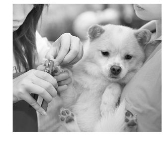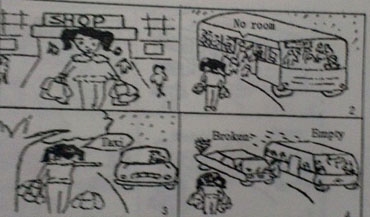题目内容
She sells second-hand articles at reasonably fair prices from 10 to 50 dollars ____ in her shop.
A. somehowB. anywayC. nowhereD. anywhere
D
【解析】
试题分析:句意:在她的商店她以几乎公平合理的价格从10至50美元卖二手物品。A. somehow不知怎么地,不知道怎样,B. anyway无论如何,不管怎样,C. nowhere 无处,D. anywhere任何地方,(用于强调)根本,一点儿,将近,几乎,选D。
考点:考查副词辨析

练习册系列答案
相关题目

 nickname Lucy. If you’re a fan of Peanuts, then you can clearly imagine my behavior as an older sister.
nickname Lucy. If you’re a fan of Peanuts, then you can clearly imagine my behavior as an older sister.  ack to the reception hall. “Coming?” they asked. “In a minute,” I replied, and I sat back down on the bench, dizzy from what Mike had just told me.
ack to the reception hall. “Coming?” they asked. “In a minute,” I replied, and I sat back down on the bench, dizzy from what Mike had just told me. instead of her?
instead of her?